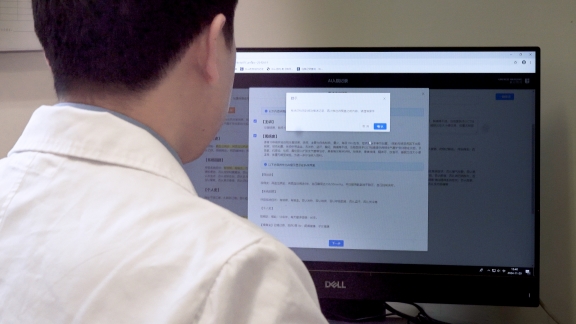Shanghai Takes a Leap into Smart Medicine with AI Innovations
In a groundbreaking move towards revolutionizing healthcare, the Shanghai Health Commission recently launched the city’s first medical corpus alongside a suite of AI applications on a new generative AI service platform known as MaaS (Model as a Service). This innovative step aims to enhance the efficiency and accuracy of local medical practices, marking a significant milestone in Shanghai’s journey towards smart medicine.
Embracing AI in Healthcare
Artificial intelligence is reshaping how doctors in Shanghai operate. With the introduction of AI-driven digital medical records and advanced diagnostic assistance systems, local hospitals are witnessing a transformative change in patient care. Among the first facilities to harness the power of MaaS are Zhongshan Hospital and Shanghai East Hospital, where the technology is now integral to daily operations.
Streamlining Medical Record Keeping
At Zhongshan Hospital, a state-of-the-art AI system, developed in collaboration with United Imaging Intelligence, is proving invaluable. This innovative system is designed to gather key information during patient consultations, enabling doctors to produce standard medical records in just five minutes—down from a former average of twenty. This significant reduction in time not only streamlines administrative tasks but also allows healthcare professionals to dedicate more of their focus to patient interaction.
Dr. Shi Lin, a physician specializing in respiratory diseases at Zhongshan Hospital, has been utilizing this AI system for several months. He shares enthusiastic feedback on its performance: “It efficiently captures important details as we converse with our patients. The automated content corresponds closely with our notes, which simplifies the documentation process and saves us precious time.”
AI-Assisted Diagnostics
At Shanghai East Hospital, another leap forward in technology can be seen with the implementation of the Med-Go system—a cutting-edge multimodal AI model specifically designed for clinical diagnostics. This system assists healthcare providers by analyzing a patient’s prior treatments, lab results, and medical history to quickly offer accurate diagnoses and tailored treatment recommendations.
This technology not only helps prevent misdiagnoses but also enhances the overall quality of healthcare services, ensuring patients receive timely and precise care.
Developing Robust Medical Data
To support AI applications in healthcare, the Shanghai Health Commission has introduced two medical corpora, which serve as comprehensive databases of medical terminology and information. These corpora are crucial for ensuring accurate content generation and are tailored for clinical use.
One of the released corpora focuses on industry-specific terms encompassing over 100 medical fields and nearly 20 applications, including intelligent consultations and assisted diagnosis. The other corpus is dedicated to public health, gathering authoritative guidelines and industry data from both domestic and international sources.
Why This Matters
The integration of AI in healthcare is much more than just a technological innovation; it represents a paradigm shift in how medical professionals approach patient care and administrative tasks. The benefits are clear: improved efficiency, better communication between doctors and patients, and a higher standard of healthcare.
As these advancements unfold in Shanghai, they set a promising precedent for other cities to follow. The approach not only benefits healthcare workers but greatly enhances the patient experience, making healthcare more accessible and efficient overall.
Join the AI Revolution
As Shanghai leads the way in smart medicine through these advancements in AI, we can’t help but be excited about the future of healthcare. The AI Buzz Hub team is eager to see how these breakthroughs will evolve. Want to stay in the loop on all things AI? Subscribe to our newsletter or share this article with your fellow enthusiasts.




